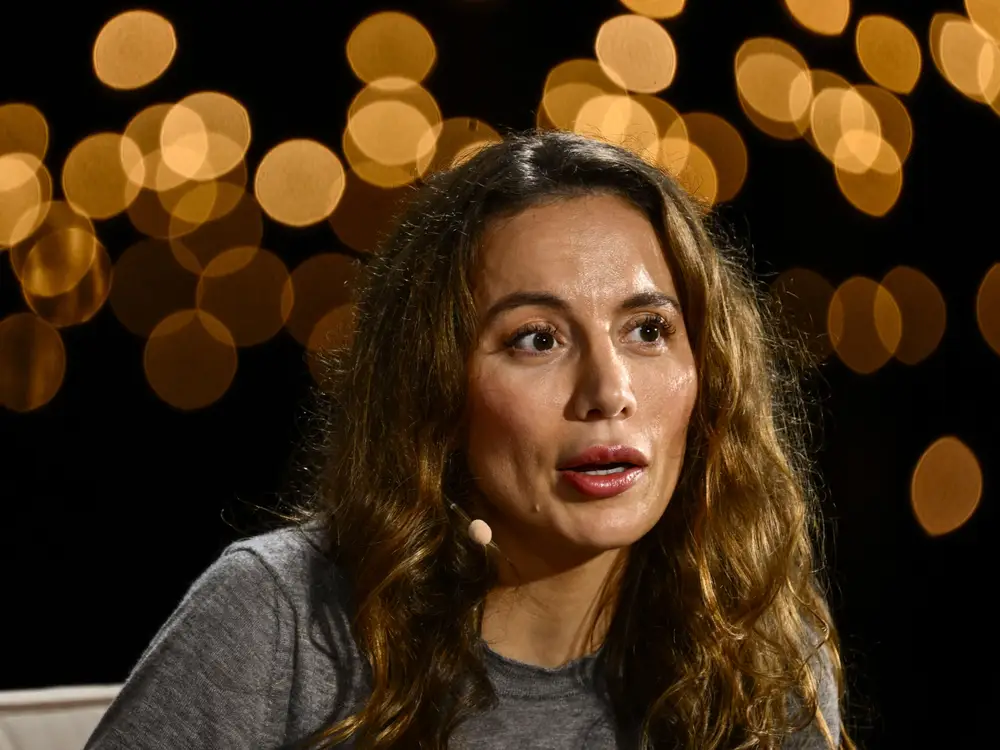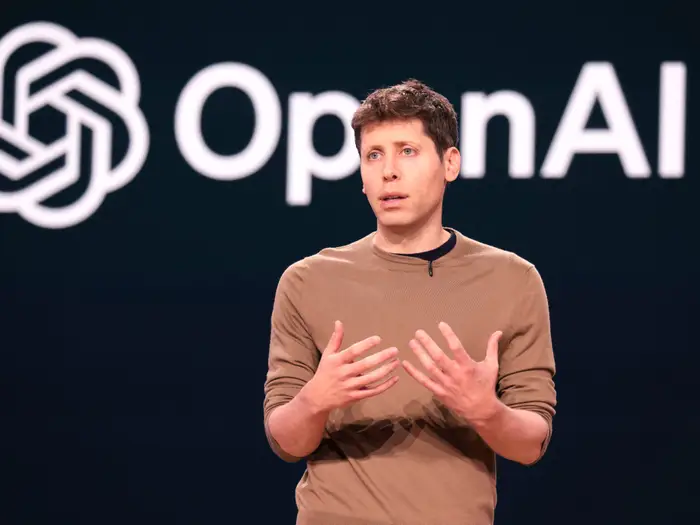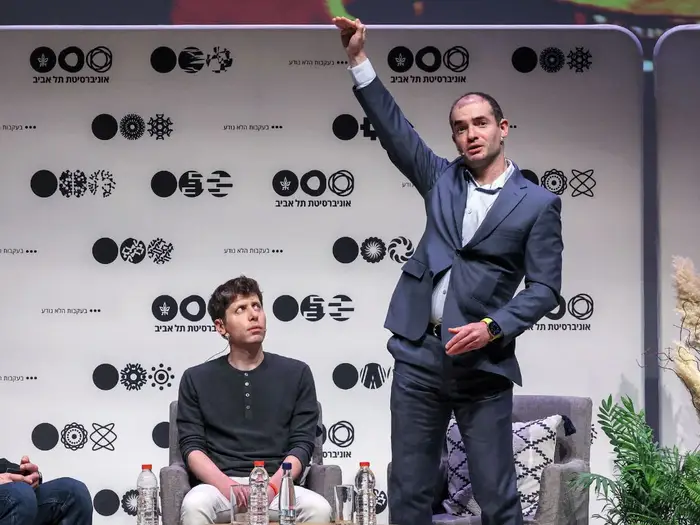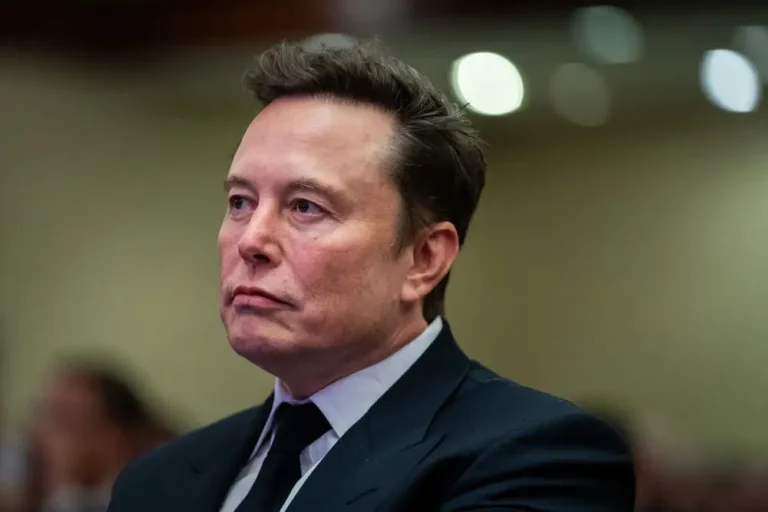OpenAI’s rivals are on the prowl after an exodus of high-level executives

The recent outflow of talent from OpenAI could mean the brain drain is just getting underway.
Employee badges are hitting the floor at OpenAI.
Last week, chief technology officer Mira Murati became the latest high-profile defector from OpenAI. Her departure after six years follows the resignations of three members of the founding team, Ilya Sutskever, who was chief scientist, Andrej Karpathy, and John Schulman, this year. A fourth cofounder and president, Greg Brockman, is out on sabbatical through the end of the year.
In the fallout of these exits, tech recruiter Alex Klein said he’s noticed more OpenAI employees turn on the Open to Work banner on LinkedIn, which is supposed to signal recruiters that they’d welcome their outreach. Dan Miller, a recruiter and partner at True Search, said his firm has fielded more interest from current employees since the board’s failed coup.
“I have a couple of friends who are at OpenAI. They reached out asking, “How do I get into Anthropic?” said Tim Tully, a partner at Anthropic backer Menlo Ventures.
Suddenly, it’s starting to feel like open season for OpenAI employees. That’s despite the company closing a massive $6.6 billion funding round with backing from Thrive Capital, Cathie Wood’s Ark Venture Fund, and others.
Half a dozen recruiters and technology investors told B-17 that the company’s near-constant power struggles, purges, and a fierce philosophical debate among workers about how best to develop artificial intelligence make it easier for other startups to swoop in and hire away technical staff. The recent outflow of talent from OpenAI could mean the brain drain is just getting underway.

A recruiter said his search firm has fielded more interest from current OpenAI employees since the board’s ouster of Sam Altman a year ago.
For one, an exodus of technical leaders could shake people’s convictions about the company’s ability to maintain its edge over rivals like Google and Anthropic.
“It’s a race to stay at the top. The people they lost weren’t just colleagues, they were the people that were building the dang thing,” Klein said. “I would imagine being at OpenAI, they have a good sense of how valuable those folks are.”
Seeking alignment
The departures bring into focus internal conflicts at the company. When OpenAI launched as a research nonprofit, it sought “to advance digital intelligence in the way that is most likely to benefit humanity as a whole, unconstrained by a need to generate financial return.” The shift toward making money has caused friction between workers who wonder whether rushing its technology to market is ethical given the potential for misuse.

Safety-conscious employees are quitting along with founders like Ilya Sutskever (right).
Some of those employees are fleeing for startups that they feel more closely align with their beliefs. Anthropic has been a particularly popular landing spot. This year, it hired away OpenAI’s former safety lead, Jan Leike; Schulman, cofounder and chief architect of ChatGPT; and Durk Kingma, another cofounder.
In an X post on Tuesday, Kingma said, “Anthropic’s approach to AI development resonates significantly with my own beliefs, looking forward to contributing to Anthropic’s mission of developing powerful AI systems responsibly.”
The chaos at OpenAI is a boon for Anthropic’s recruiting efforts.
“When you look at another company and there’s drama around it, as a customer or an employee, you’re like, wait a minute. If all these great people are leaving, what does that say?” said Matt Murphy, a partner at Menlo Ventures. “The more time you spend with Anthropic, the more you really like the team and what they’re about.”
Companies like Anthropic and Perplexity are telling recruiters that they’re seeking “mission-oriented” candidates. Employees who feel tightly aligned with the mission are less likely to jump for more money, recruiters said, and as far as salaries go, OpenAI continues to pay above market rate. Founders added that they get better work out of people who are highly engaged with the mission.
“At Glean, we are very focused on mission-oriented candidates,” said Arvind Jain, Glean’s founder and CEO. “Engineers love the product we build as it is for them. And when they are aligned with our mission of helping everyone work better with AI, they make the biggest impact.”
Jain added that workers who are experts in large language models remain in short supply. “There is more demand, and more startups than folks, especially in the Bay Area where we hire,” Jain said.
Size matters
There’s another, less altruistic reason employees are leaving OpenAI. Recruiters and investors said employees could make a lot more money at a smaller startup by selling their shares in an exit.
“One consideration would be that Open AI is so highly valued at this point that it’s a question how much more your stock would be worth compared to the strike price (at least for recent hires) if and when it ever went public,” said Matt Hoffman, partner and head of talent at M13, an early-stage venture capital firm.
He continued, “But what I see much more often is that for the best engineers, it’s far more interesting to work on early stage, smaller companies where they can have an outsize impact in building and creating the next big thing.”
The search startup Perplexity has more than doubled its workforce to just over a hundred people this year, according to the company. Part of the pitch it makes to candidates, said Johnny Ho, chief strategy officer and a cofounder, is that they can work without the red tape and time-wasters at a bigger company.
“One thing that’s very easy to perceive is the ratio of the number of users we have compared to the number of employees,” Ho said. “It’s a unique opportunity where you have a lot of leverage for your skillset wherever you are on the stack.”






